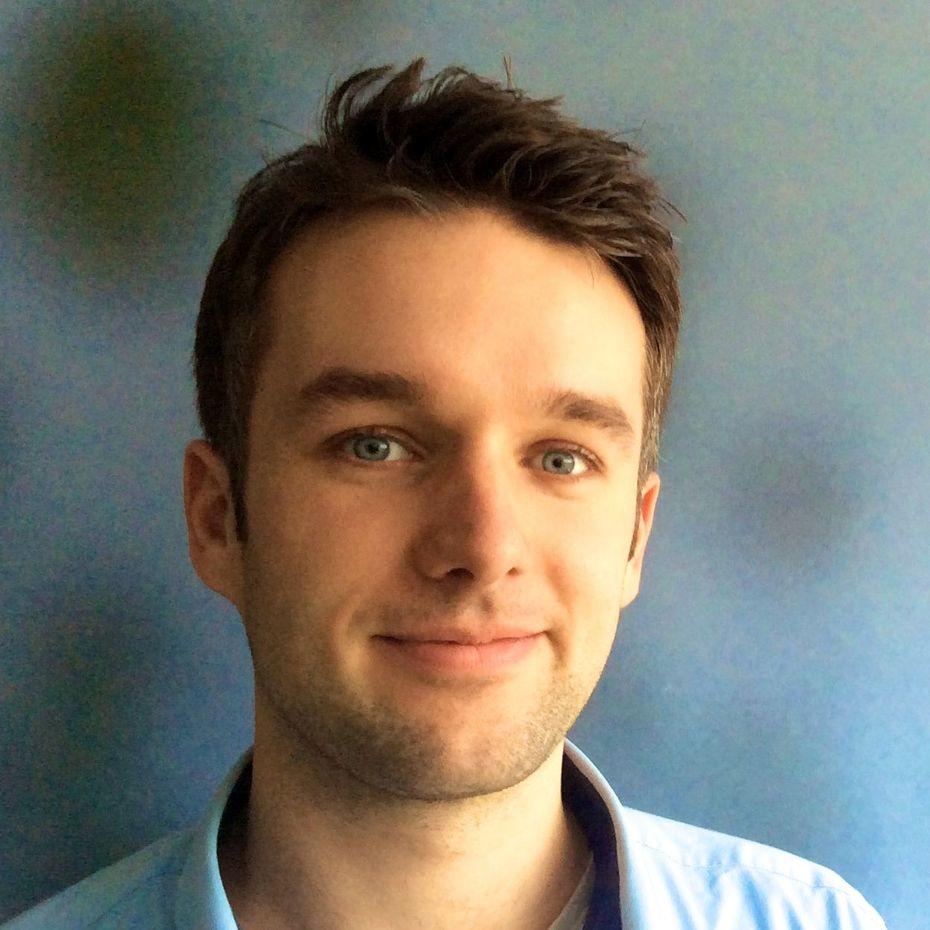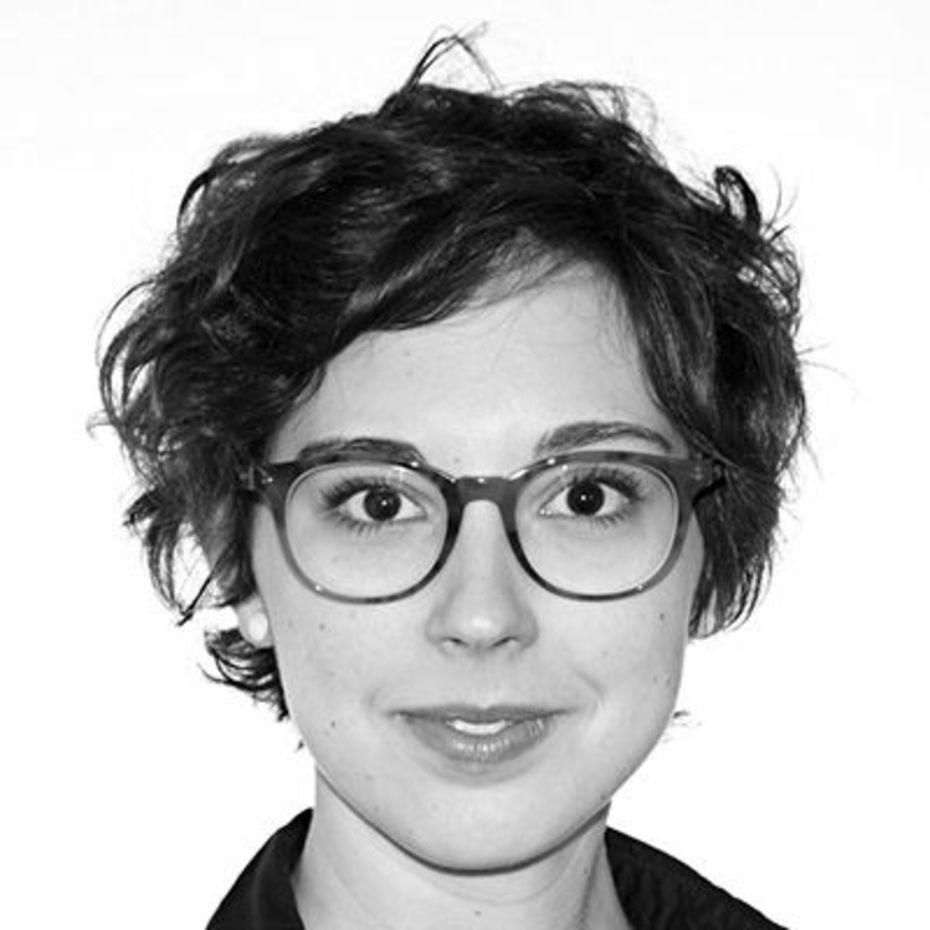Hosts and Guests 2017
Steven van der Laan invited by Veronika Settele (March–April 2017)
Steven van der Laan and Veronika Settele
Veronika Settele and Steven van der Laan both are working on a Ph.D in which animals feature at the centre of attention: They study the industrialisation of livestock in the twentieth century. Veronika Settele’s research is dedicated to the way livestock-keeping has changed and how these changes in the environment of cattle, pigs and poultry enabled industrialised farming, from 1950 onwards. Steven van der Laan, coming from Utrecht University in the Netherlands, focusses on the breeding of pigs and how the methods of breeding have transformed through techno-scientific innovations. The combination of their research almost goes without saying. Whereas Veronika Settele looks at how farms turned into factories, Steven van der Laan studies how the animals at these farms turned into production-units.
Within the frame of the Dahlem Junior Host Program, Steven van der Laan and Veronika Settele will work on the transnational dimension of the industrialization of animal production, starting with the scientific, cultural, and material exchanges between Germany and the Netherlands. Their shared research interest further includes interaction between consumer behaviour, science, and agriculture (1); visions of planning and controllability that were realised and those that failed during the second half of the 20th century (2); and the confrontation between human feasibility and ethical concerns attached to intensive livestock farming (3).
In addition, Steven van der Laan will give a public lecture in the Colloquium zur Zeitgeschichte, led by Prof. Dr. Cornelius Torpon 27 April 2017. This event opens the possibility to invite and connect interested scholars based in Berlin and leads to the second part of the targeted cooperation: We want to prepare an international workshop on transnational transfers within and during the industrialisation of animal production, to get likeminded scholars in touch with each other.
Maximilian Benz invited by Johannes Traulsen (June 2017)
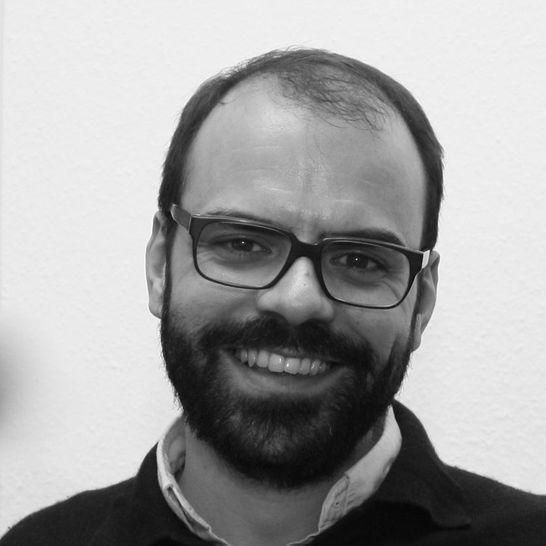
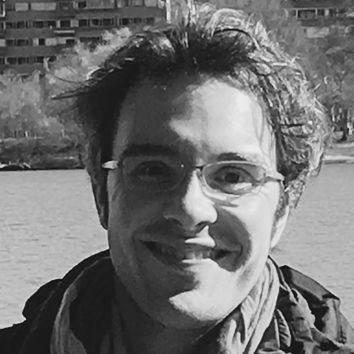
Maximilian Benz and Johannes Traulsen
The medieval manuscript VadSlg Ms. 302 was written about 1300 and is kept in the Cantonal Library of St. Gallen. It contains two historiographical texts: The Karl by the Stricker is a revision of the Rolandslied and is presenting an epic version of the important battle of Battle of Roncevaux by Charlemagne. The Welchronik by Rudolf of Ems narrates the history of the world from the creation up to king Solomon. The combination of these two texts in a single manuscript is bringing together two scholars of medieval literature. Dr. Maximilian Benz (University of Zurich) is about to finish his postdoctoral thesis on Rudolf von Ems and the poetics of his oeuvre. Johannes Traulsen (Freie Universität Berlin) is just entering a study on medieval literature on Charlemagne. Accordingly, the St. Gallen manuscript is a promising object of research for both scholars and an excellent reason for a cooperation. We will focus on the topic of power determining the plot, the presentation and the reception of the two narrations in the manuscript. We have planed to have a few work meeting during one week in summer to compare our research results and to conceptualise our approach to the manuscript and its texts. Furthermore, we will also organise a workshop in autumn to present the outcome of our cooperation to the public and discuss it.
Dana Sajdi invited by Colinda Lindermann and Rossella De Luca (June 2017)



Dana Sajdi, Colinda Lindermann and Rosella De Luca
Colinda Lindermann and Rossella De Luca are PhD candidates within the Dahlem International Network Junior Research Group “Arabic Philology and Textual Practices in the Early Modern Period” directed by Prof. Dr. Islam Dayeh.
Colinda Lindermann’s research focuses on the intellectual historical and social role early modern Arabic philologists played in the discourse on language development and language corruption, as reflected in early modern Arabic dictionaries on loanwords and solecisms.
Starting from the Arab-Islamic pre-modern humanist tradition, Rossella De Luca focuses on Jurji Zaydan's (1861-1914) philological and linguistic contribution to modern debates on the development of the Arabic language and its role within the intellectual and cultural movement of the Arabic Nahḍa.
Dana Sajdi is Associate Professor of Islamic and Middle Eastern History at the Department of History, Boston College. She is an expert on the production of historical texts in the early modern period. By viewing the production of text as a social and material practice, she links historical and literary methods to give new contexts to the primarily philological topics investigated by Rossella De Luca and Colinda Lindermann. The focus of the collaboration with Dana Sajdi is “Texts as objects and images”, a two-week project aimed at exploring methods of “translating” and visualizing the information contained in primary texts to enhance our cultural historical understanding of Arabic-Islamic society in the Early Modern Period.
Kiril Mladenov invited by Strahil Panayotov (June–July 2017)


Kiril Mladenov and Strahil Panayotov
Kiril Mladenov and Strahil Panayotov work together on an article scrutinizing the health of the 7th century BCE Assyrian King Esarhaddon and his family.
Kiril Mladenov recently finished his PhD on the political and social history of Esarhaddon at Sofia University, Bulgaria. Strahil Panayotov is a post-doc at the BabMed, ERC-project at the Freie Universität in Berlin, dealing with Mesopotamian medical texts.
Their cooperation, supported by the Dahlem Junior Host Program, studies the health of King Esarhaddon and the Assyrian royal family through a combination of key sources consisting of cuneiform tablets. Those objects, kept in the British Museum, were discovered in the capital of the Assyrian empire Nineveh (now troubled Mosul), where King Esarhaddon resided. Kiril and Strahil will take a careful look at royal letters mentioning the health issues of the Assyrian royal family, and connect the relevant medical terminology with the ancient therapeutic encyclopaedia from Nineveh. In this way, one will see how the medical conditions of Esarhaddon and his family, addressed in the royal letters, were cured and it will also provide a general picture of their ailments, without making a retrospective diagnosis.
Beatrice Kitzinger invited by Tina Bawden (June–July 2017)
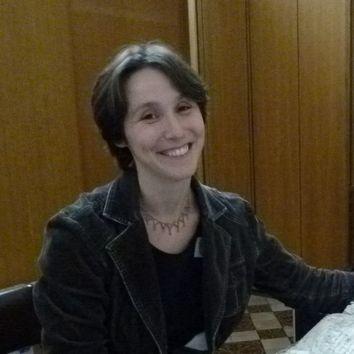
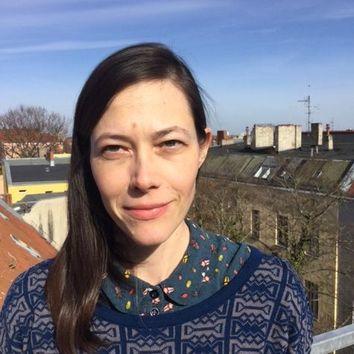
Beatrice Kitzinger and Tina Bawden
Beatrice Kitzinger and Tina Bawden both work on early medieval illuminated manuscripts. Beatrice Kitzinger is Assistant Professor at the Department of Art and Archaeology at Princeton University. Her current book project, “Presence and History in Carolingian Gospel Illumination” analyses interrelations between pictorial narrative and the concepts of gesta and historia in Carolingian book culture. Tina Bawden is a research assistant at the Kunsthistorisches Institut of the Freie Universität. Her project, entitled “Topologies of the Codex: Space in Carolingian and Anglo-Saxon Manuscript Illumination”, analyses pictorial constructions of space in the early medieval book and how these intersect with the idea and material reality of the book as a spatial object.
Their cooperation within the framework of the Dahlem Junior Host Program focuses on two aspects. One is a shared interest in the notion of the book as object in the early Middle Ages and beyond, which they plan to develop into a summer school for graduate students. The second is a focus on the question of the placement and role of images within the Christian Gospel book, which is a key book type for both Beatrice’s and Tina’s project. They will make use of collections and institutions in Berlin to try out new and different ways of working together on medieval manuscripts.
Salima S. El Mandjra invited by Sarah Dornhof (August–September 2017)


Salima S. El Mandjra and Sarah Dornhof
Salima S. El Mandjra and Sarah Dornhof share an interest for contemporary art practices in Morocco. In cooperation with the Goethe Institut Rabat, they have already been working together in the context of a series of artist talks with Moroccan artists.
Salima S. El Mandjra is an architect and teaches at the École Nationale d'Architecture in Rabat. She studies sociocultural transformations in the city by looking at changing spatial practices and social representations concerning urban landscapes and cultural heritage. Questions concerning gender and contemporary art in Morocco also are among her research interests. Sarah Dornhof is a postdoctoral researcher at the Institute of Art History at Freie Universität Berlin. Her research project examines changing conceptions of the public sphere in interrelation with contemporary art practices in Morocco.
The cooperation in the context of the Dahlem Junior Host Program aims to prepare collected video and audio material from the artist talks series in Rabat (October 2016 – February 2017) for an online publication project and to work on academic articles about relevant issues to be extracted from these materials. The meeting will also intensify discussions about research questions and approaches as well as about further ways of cooperation.
Dina Salama invited by Falk Quenstedt (August–September 2017)


Dina Salama and Falk Quenstedt
Dina Salama and Falk Quenstedt share many research interests: both apply comparative approaches to their examination of Arabic and German literary texts from the middle ages, and both are concerned with questions of transculturality, especially in regard to the medieval Mediterranean as a zone of contact and exchange. Dina Salama is professor of German medieval literature at Cairo University, Egypt and has, in her research, repeatedly compared texts and genres of Arabic and German literatures. Falk Quenstedt is a research assistant in the project B02 “The Marvellous as a Configuration of Knowledge in Medieval Literature” (head: Jutta Eming) that is part of the Collaborative Research Center 980 “Episteme in Motion”. In his PhD-project he examines a ‘knowledge of the east’ that appears in a likewise manner in Arabic and German travel narratives in the time around 1200, texts such as Herzog Ernst that Dina Salama also worked with.
The guest residence will serve an academic exchange in various ways: first, the PhD-project of Falk Quenstedt, especially its theoretic framework and preliminary results, will be discussed; furthermore, a joint publication on the Guote Gêrhart of Rudolf of Ems will be prepared, a text that shows many similarities to Herzog Ernst. It is about the journey of a German merchant to an ‘oriental’ city where he maintains friendly contact with a local merchant and buys the freedom of Christian slaves. As the Guote Gêrhart offers many options to examine historic literary negotiations of transculturality, even in a Mediterranean setting, it is of special interest for both researchers. Finally, the guest project will also serve the purpose of planning future co-operations, such as the organization of a panel within an international conference regarding transcultural perspectives in German studies.
Aurélia Gaillard invited by Marie-Irène Igelmann (September–October 2017)


Aurélia Gaillard and Marie-Irène Igelmann
Aurélia Gaillard is Professor of 18th century French Literature at Bordeaux Montaigne University in France. Her research has focused in particular on simulacra of the human body - automatons, puppets, statues, androids and anatomic models such as wax statues - in French literature, aesthetics and philosophy from the 17th and 18th centuries. Her research takes into account the scientific context of the time, i.e. both a constantly evolving philosophy of nature and a growing recognition of medical practice. Aurélia Gaillard considers simulacra of the human body to be heuristic models, metaphors and marvels, filling the increasingly vacant seat of the deity in the Enlightenment perception of the world.
Marie-Irène Igelmann is a research associate at the Freie Universität Berlin’s Institute of Theatre Studies. In her PhD thesis supervised by Professor Dr. Doris Kolesch, she examines Diderot’s metaphor of the “mannequin.” The metaphor was used in one of Diderot’s most important theoretical works, the Paradoxe sur le comédien, to illustrate his conception of the ideal actor. Her purpose is to investigate the aesthetic and anthropological concepts underlying the metaphor.
In the context of the Dahlem Junior Host Program 2017, Aurélia Gaillard and Marie-Irène Igelmann will focus on the historical emergence of the metaphor of the “mannequin” by placing Diderot’s concept of the human body in the scientific and philosophical context of the time. They will especially examine Descartes’, La Mettrie’s, Condillac’s and Vaucanson’s influences on Diderot’s philosophical and aesthetic writings. At the end of Aurélia Gaillard’s visit, an interdisciplinary workshop on “Diderot and 18th Century Human Simulacra” will be organized at the Freie Universität Berlin’s Institute of Theatre Studies so that Aurélia Gaillard and Marie-Irène Igelmann can present and discuss the results of their joint research.
Daniel Lanzinger invited by Matthias Adrian (September–October 2017)


Daniel Lanzinger and Matthias Adrian
Prophecy and Divination in Luke-Acts
This project seeks to investigate motifs and patterns of prophecy in Luke-Acts. It aims at uncovering the cultural scripts Luke brings to the mind of his intended readers when using terminology and narrative patterns that originate in the context of prophecy and divination. Greco-Roman texts on oracles and divination will be considered as well as the Septuagint and other Hellenistic Jewish literature that adapt aspects of pagan prophecy for their own purposes. A comparative study shall eventually lead to a deeper understanding of the pragmatic effects that Luke-Acts intended to evoke from its earliest recipients.

